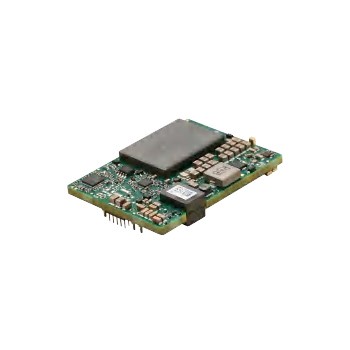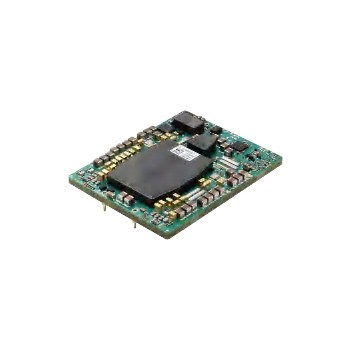In the modern high-tech era, the reliability of DC-DC power supply modules is higher, but AC-DC power conversion and DC-DC power conversion have gradually become a module or integrated chip industry, and have gradually become a variety of electronic equipment and industrial automatic control. The quality and reliability of the AC-DC power supply module and DC-DC power supply module, which are important components of the equipment, also affect the reliability, failure rate and maintenance rate of the entire equipment to a large extent.
Factors that affect the reliability of power supply products include design, process, management, testing and methods, and incoming materials. These aspects are the aspects that manufacturers and manufacturers of power supply modules pay attention to. In fact, the reliability of the power module should not only ensure the optimization of various performance indicators, but also ensure that the production environment of the power module is clean and orderly, with good electrostatic protection measures, and appropriate temperature and humidity. The power modules produced under the conditions can really be called power products with high reliability. With the continuous progress of society, electronic equipment is playing an increasingly important role in various fields such as industrial production, transportation, and communication. The reliability of electronic equipment also determines the effective operation of various economic activities to a certain extent. Although the cost of the power module in the electronic equipment is very low, it can be called the "heart" of the electronic equipment. The failure of the power module may directly lead to the paralysis of the electronic equipment and cause irreparable losses.
1. Electrostatic protection: During the manufacturing, storage, transportation and assembly of components, due to the relative movement of equipment, materials and operators, electrostatic voltage may be generated due to friction. When the device is in contact with these charged bodies, the charged The body will discharge through the device, causing the device to fail. Most modern integrated circuits use MOS circuits, and most power modules also use MOS tubes and integrated circuit chips. If you do not pay attention to electrostatic protection in the production of power modules, it will often lead to a high component failure rate. Even a product that has passed the test may cause slight damage to the MOS tube and integrated circuit chip due to static electricity during the manufacturing process, thereby affecting the life and reliability of the power module. After introducing the electrostatic protection system in the production environment (using the anti-static grounding of the human body, the anti-static grounding of the floor and the anti-static grounding of the operating device, and the anti-static grounding of the instrument), the damage to the MOS tube and the integrated circuit chip can be effectively avoided. Anti-static damage to electronic components is a complex system engineering that runs through the entire process of system or equipment development and production. From component procurement, packaging, transportation, inventory, installation, commissioning, testing to user use, the whole process, all-round, and all staff should follow a series of related measures to prevent electrostatic loss. Protection is a systematic project, which requires investment in equipment, personnel, and effective management and systems. It can be seen that the quality of an electrostatic protection system directly reflects the quality management level of an enterprise and is a demonstration of the strength of an enterprise.
2. Humidity: Moisture can penetrate into porous materials, causing leakage paths between conductors, generating oxygen, and absorbing moisture to reduce insulation resistance and isolation withstand voltage. However, excessive drying can also make some materials brittle, rough, and even static. Therefore, the production environment will also have a certain impact on the reliability of the power supply. Most power modules are produced by soldering the components on a small PCB (printed circuit board), and then potting the small PCB into the housing with resin. In the production process, if the production environment has high humidity, especially in the rainy season in the south, the moisture in the air will condense on the PCB board and components. The moisture on the PCB board and components cannot be removed. When the power module works at a higher ambient temperature, the moisture on the PCB board and components will vaporize and expand, causing cracks in the power module, breaking the internal transformer wires, or introducing external moisture, corroding the components inside the power module or causing The circuit inside the module is shorted. For occasions with high isolation voltage requirements, the moisture on the PCB board and components will also reduce the isolation capability of the power module, and even cause breakdown between the primary and secondary stages, resulting in serious consequences. Too low humidity will also cause too much dust to float in the air, affecting the quality of the power module. Too low humidity will also generate electrostatic charges due to the movement of personnel. Even through the protection of the electrostatic protection system, it may cause electrostatic damage or soft breakdown of components, resulting in the same consequences as described above. Introducing the air-conditioning system and dehumidification system in the production environment can keep the humidity of the production environment at an appropriate level, and avoid adverse effects on the reliability of the power module due to moisture condensation or excessive air drying. The impact of humidity on the product Moisture in the air is immersed in the resin. At the initial stage of heating, a small amount of water vapor pressure causes delamination of the resin interface. The pressure of water vapor increases with the soldering temperature, causing the resin to expand, and the water vapor penetrates through cracks in the package. discharge, resulting in defective products.
3. Temperature: The temperature of the production environment also needs to be strictly controlled. High temperature and low temperature will have varying degrees of impact on components.
3.1 High-temperature and high-temperature environment will change the electrical performance parameters such as resistance, inductance, capacitance, and electric power series in the power supply, making the insulator soft and causing insulation failure; active components may cause structural failure due to expansion and seizure, and the coating surface will be damaged. Bubbles, oxidation and other chemical reactions are accelerated, lubricant viscosity is reduced and evaporated to lose lubricity; due to physical expansion, the wear of moving parts increases and its structural strength decreases.
3.2 Low temperature and low temperature environment will cause the plastic and rubber of the power supply to lose flexibility and become brittle. When there is moisture, it will freeze, and the lubricant will become gelatinous and viscous and lose lubricity; the coating surface will crack; due to physical shrinkage Fail structures, alter electrical and mechanical functions, etc.
3.3 Temperature control power supply modules, especially small-sized 1W and 2W power supply modules, often use magnetic winding transformers with an inner diameter of less than 5mm. Winding such transformers can only be produced by hand. When the production temperature is high, the palms of the production staff will Sweating. When winding the transformer, the sweat on the hands will stay on the transformer. The moisture and salt in it will damage the paint skin of the transformer, reduce the insulation capacity of the transformer, and have a potential impact on the reliability of the power module. Install an air-conditioning and temperature adjustment system in the production workshop to ensure that the workshop temperature is maintained at around 26 degrees, so that the production staff can have a cool and comfortable environment, so that reliable quality power module products can be produced.
4. Dust: More dust will scratch the power supply, wear the surface of the finishing process, cause the pores to be blocked, the lubricant will be polluted, the insulating parts will be polluted, and a corona path will be generated, which will reduce the electrical performance. If the production environment is not clean, and the dust floating in the air falls on the PCB board, the situation of component virtual soldering and false soldering will greatly increase, which will not only affect the production pass rate of the product to a certain extent, but also affect the reliability of the product and the reliability of the product. life span is affected. Paying attention to the cleanliness of the production environment and doing a good job in 5S management is a guarantee to ensure the production of qualified and reliable products. The weather in the north is more sandy and dusty than in the south, so more attention should be paid to control, and air filtration, sealing, and smoke exhaust systems can be used to solve the problem.
5. Storage and safekeeping: Improper storage and safekeeping are another important reason for component reliability reduction or failure, and attention must be paid and corresponding measures must be taken. For example, the temperature and humidity of the warehouse should be controlled within the specified range, use a moisture-proof box, pay attention to moisture-proof, anti-static, do not allow harmful gases to exist, and carry out regular re-inspection. Containers for storing devices should be made of materials that are not prone to static electricity and chemical reactions of components, and sensitive components should be checked regularly. Handling and handling of electronic raw materials should also be handled with care. Ceramic capacitors and magnetic materials are all materials that are easy to break, so special care should be taken when using and handling them.
To sum up, the management of the production environment is an important guarantee for the reliability of the module power supply. These managements require the input of manpower and material resources of the enterprise, and it is necessary to implement various management measures, rather than just writing them on paper. on the wall. The management level of the production environment embodies the production capacity and production strength of a module power supply manufacturing enterprise. Only enterprises that rely on quality to survive are truly everlasting enterprises. As people increasingly rely on modern technology, as the energy source of electronic equipment, module power supply has become a very important or even the most critical component in electronic systems, and the reliability of power supply modules has increasingly attracted the attention of various electronic equipment manufacturers. Module manufacturers put forward higher requirements, and the evaluation of production environment and production management are also listed as important contents of supplier evaluation.




